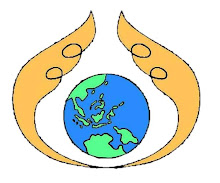By Karl B. Kaufman
published on Maxim's magazine
Perhaps to prove that discrimination against Muslims is not just some go-getting journalist’s idea for a controversial story to impress his editor, a non-profit, non-government organization had recently released a 40-minute documentary video that effectively puts face on the topic.
In the video, titled “In the Light of the Crescent Moon,” Christians openly expressed their trepidation toward Muslims. “I’m afraid of them,” says one woman without blinking an eye. Others accuse their Muslim neighbors of being having connections with the Abu Sayyaf, the notorious arm of Osama bin Laden’s al-Qaeda terrorist network in the country.
If anything, such interviews show the widespread biases that continue to hound every Muslim who found his/herself slugging it out in the pre-dominantly Christian National Capital Region, whether in their community, in workplaces, government offices, and even schools.
“Day in, day out, Muslim families contend not only with poverty but discrimination and prejudice as well,” says Marites Africa, founder and executive director of Peacemakers’ Circle Foundation Inc. (PCFI), the group behind the documentary video. “We hope that this documentary video will give Christians a better understanding of their Muslim brothers.”
Muslims interviewed for the documentary recount instances wherein they felt the pressure of prejudice on their shoulders. “Everywhere we go, people think we are about to do something criminal,” says Yusuf, a convert. One girl, identified in the video as Hannah, lamented how neighbors would make fun of her veil. “They call me names like madre (nun) or Abu Sayyaf,” she complains.
But name-calling is not the end of it. Many Muslim men are having a difficult time landing decent jobs because employers, for reasons only they know, wouldn’t hire someone from their religion. In the video a Muslim housewife narrated how her husband was kicked out of his job when his bosses learned of his religion. “They suspected that my husband is up to no good. They think he’s a rebel,” she lamented.
“We came here in Manila to work, not to cause any trouble,” one Muslim said.
And then there were the human rights violations done on them by men in uniform, the harrowing warrant-less rounding up of Muslims for various crimes they did not commit. As one middle-aged Muslim in the video said, “Many of our rights have been violated. We don’t need to have an anti-terror bill. Arrests of innocent Muslims are very rampant.”
Africa, a candidate for a master’s degree in theology at the Ateneo de Manila, says the “terrorist” and “troublemaker” label tagged on Muslims is unfair and smacks of blatant and baseless discrimination. “(Muslims) are good people,” she says. “They just want to break free from poverty, eke out an honest living for their family, like just everybody else.”
Africa says the documentary is only part of her group’s effort to bridge the gap between Muslims and other religions. She adds that since 2003 PCFI has been conducting dialogues between Christians and Muslims with hopes that problems besetting Muslims will be addressed. Also, they hold sessions that deal with, among others, fear management (“In order to bring the goodness out of people, you have to remove the fear.”).
---------*----------
This is a 20-minute video documentary
on the plight of Muslims in Metro Manila.
The story is told by Christians and Muslims who
have been working together in building bridges of mutual respect, understanding and cooperation
between Muslims and Christians in grassroots communities in the metropolis.
on the plight of Muslims in Metro Manila.
The story is told by Christians and Muslims who
have been working together in building bridges of mutual respect, understanding and cooperation
between Muslims and Christians in grassroots communities in the metropolis.
